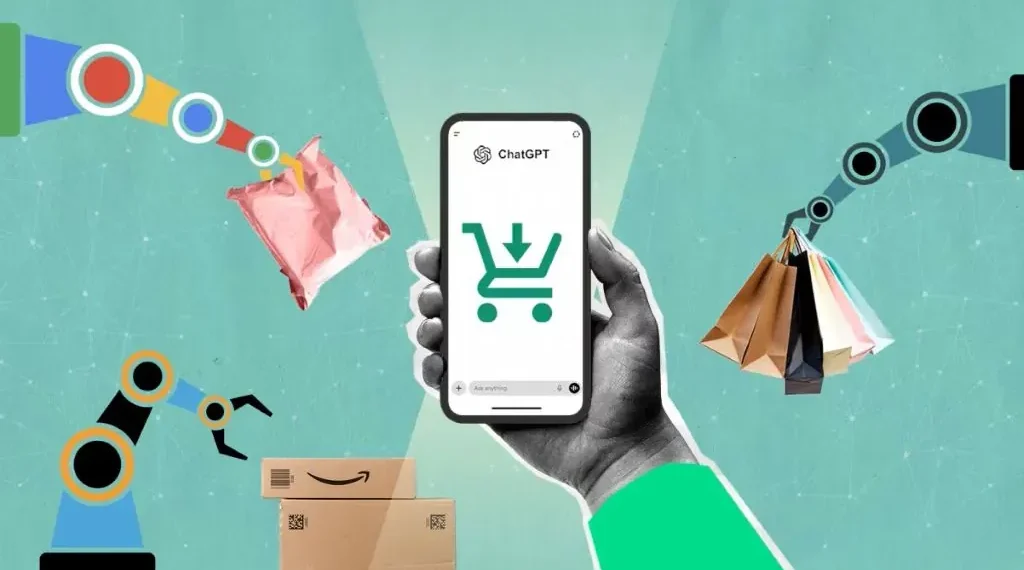AI Shopping Tools Poised to Reshape Online Retail Market
Google, Amazon, and AI startups like OpenAI are introducing AI-powered shopping assistants designed to streamline online purchasing. Analysts say these innovations could redefine e-commerce and determine the leaders of the next digital era.
The Shift Toward AI in Online Shopping
Online shopping remains one of the most significant activities on the internet. According to Jeremy Goldman, senior director of marketing, retail, and tech briefings at eMarketer, controlling the AI-driven shopping experience allows companies to monetize attention and consumer engagement more effectively.
Tech firms are now competing to integrate AI assistants that can guide purchases, suggest products, and automate transactions. Amazon and Google, established leaders in online retail, are defending their market positions against AI newcomers such as OpenAI and Perplexity.
AI Tools Already Influencing Purchases
Recent partnerships and tools highlight the expanding role of AI in e-commerce. In September, U.S. users could purchase Etsy products directly through ChatGPT, keeping customers engaged within the chatbot platform. OpenAI announced a similar collaboration with Walmart in October.
Perplexity’s Comet web browser allows users to deploy AI agents for tasks including shopping on Amazon, prompting a cease-and-desist notice from the retail giant.
According to Salesforce data, AI-assisted shopping is projected to drive $73 billion in global online sales—roughly 22% of total orders—from the Tuesday before Thanksgiving through Cyber Monday 2025. Traffic from AI tools grew 119% year-over-year in the first half of 2025, highlighting rapid adoption.
Google and Amazon Step Up AI Features
Google introduced a range of AI shopping capabilities, including a “Let Google Call” feature, which enables its AI to contact local stores to check stock, prices, and promotions. The search giant also allows users to shop via the Gemini chatbot app, with an option to purchase items automatically when prices drop. Google handles over one billion shopping-related queries daily.
Amazon has similarly integrated AI tools, such as Rufus, a shopping assistant that answers product questions and provides personalized recommendations. CEO Andy Jassy reported that Rufus interactions increased 210% year-over-year, with users being 60% more likely to complete a purchase.
The Broader Implications for the Web
AI-driven shopping is part of a larger shift toward integrating AI into everyday online activities. Shoppers can now imagine a scenario where an AI assistant plans a party and simultaneously generates a complete shopping cart with decorations, favors, and snacks.
Vidhya Srinivasan, Google’s VP and GM of ads and commerce, described these features as “layered experiences” that enhance how people seek information and accomplish tasks.
Analysts like Brad Jashinsky from Gartner compare AI’s impact on retail to previous technological breakthroughs, including the internet, smartphones, and personal computers. Such shifts create opportunities for both established companies and startups to disrupt existing markets.
Challenges and Adoption Rates
Despite growing interest, AI assistants like ChatGPT face adoption hurdles. According to a Pew Research Center report, 66% of Americans have not used ChatGPT, while 20% are unaware of the platform. Established companies like Amazon and Google retain significant advantages through existing ecosystems, including services like Amazon Prime.
The competition is not solely about e-commerce. Tech firms are also considering their broader role in shaping the future internet. As Goldman notes, companies must decide whether to “be a spoke in somebody else’s hub or create their own vision for the web.”
Looking Ahead
AI’s role in online shopping is poised to expand, with innovations likely influencing consumer behavior, marketing strategies, and the global e-commerce market. Experts predict that the companies who successfully integrate AI assistants into their platforms could dominate the next era of digital commerce, shaping how billions of users interact with the internet.
This article was rewritten by JournosNews.com based on verified reporting from trusted sources. The content has been independently reviewed, fact-checked, and edited for accuracy, neutrality, tone, and global readability in accordance with Google News and AdSense standards.
All opinions, quotes, or statements from contributors, experts, or sourced organizations do not necessarily reflect the views of JournosNews.com. JournosNews.com maintains full editorial independence from any external funders, sponsors, or organizations.
Stay informed with JournosNews.com — your trusted source for verified global reporting and in-depth analysis. Follow us on Google News, BlueSky, and X for real-time updates.














